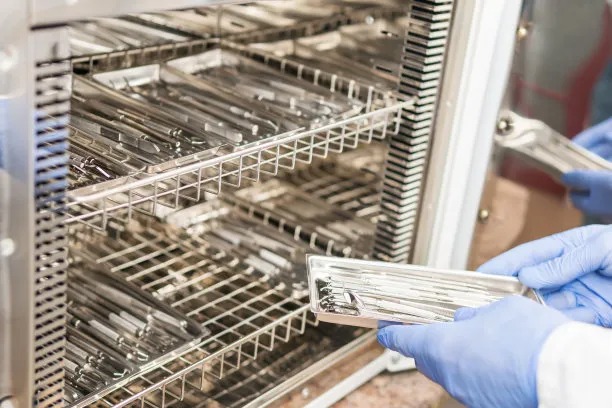Summary: Dental implantation is a complex yet essential procedure for restoring oral health and functionality. This article delves into four critical aspects that must be addressed to ensure a successful dental implantation process. First, we explore the importance of patient evaluation and preparation, highlighting the necessary medical assessments. Secondly, we discuss the surgical technique and how it directly influences the outcomes and recovery. The third section emphasizes post-operative care, detailing how proper recovery enhances the longevity of implants. Finally, we tackle the significance of regular follow-ups and maintenance of oral hygiene. By understanding these essential guidelines, patients can significantly enhance their chances of a successful dental implant outcome.
1. Importance of Patient Evaluation and Preparation

Before undergoing a dental implantation procedure, a thorough patient evaluation is paramount. This initial assessment typically includes a comprehensive medical history review, which helps the dental team understand any potential risks such as underlining health issues like diabetes or cardiovascular diseases.
Diagnostic imaging techniques, such as X-rays or CT scans, are used to create a detailed view of the jawbone structure. This step is crucial as it informs the dental professional about the bone quality and quantity, determining whether additional procedures are needed to prepare the area for implants.
Moreover, patient preparedness extends beyond just medical evaluations. Educating patients about the process and setting realistic expectations can aid in reducing anxiety and fostering a more collaborative relationship with their dental care team.
2. Surgical Technique’s Role in Success
The surgical technique employed during the dental implantation procedure is fundamental to its success. The placement of the titanium implant into the jawbone must be executed with precision to ensure osseointegration, where the bone heals securely around the implant. This reliability greatly influences the stability and longevity of the implant.
Additionally, the use of advanced technology, such as computer-guided implant surgery, can enhance precision. These technologies allow for tailored surgical guides that minimize invasive techniques while maximizing success rates.
Quality of materials also plays an essential role; utilizing top-grade titanium and biocompatible materials can dramatically improve the chances for successful integration and reduce the risk of complications.
3. Post-operative Care and Recovery
Successful dental implantation is not merely a matter of proper surgery; post-operative care is equally significant. After the procedure, patients should follow the dentists instructions for managing pain, swelling, and oral hygiene. Utilizing prescribed anti-inflammatory medications can significantly enhance comfort during recovery.
Moreover, adhering to a soft-food diet during the initial healing phase is critical. This precaution helps to reduce stress on the newly placed implant and allows for a smoother recovery process.
Regularly scheduled check-ups post-surgery enable the dentist to monitor healing progress. These follow-ups serve as an opportunity to detect any abnormalities early, thus facilitating timely intervention when necessary.
4. Importance of Regular Follow-ups and Oral Hygiene
Once the healing phase is complete, the maintenance of the dental implants through regular follow-ups becomes essential for long-term success. These periodic evaluations help assess the integration of the implant and ensure that the surrounding gum tissue remains healthy.
Moreover, implementing a robust oral hygiene regimen post-implantation cannot be overstated. Patients must commit to maintaining cleanliness through proper brushing and flossing techniques to prevent peri-implant disease, a condition that can jeopardize the longevity of the implant.
Additionally, professional cleanings every six months can significantly reduce the risk of complications, ensuring a healthier mouth and prolonging the lifespan of dental implants.
Summary:
To conclude, ensuring a successful dental implantation procedure requires a multifaceted approach. From thorough patient evaluations and precision in surgical techniques to diligent post-operative care and maintenance of oral hygiene, each aspect contributes to optimal outcomes. By prioritizing these guidelines, patients can enjoy the full benefits of their dental implants, enhancing both oral health and quality of life.
This article is compiled by Vickong Dental and the content is for reference only.
Vickong Dental
Vickong Dental is a large medical group established in Hong Kong in 2008 by professors from well-known medical universities in Guangdong and Hong Kong, as well as medical doctors from key national '985' universities (including Master's supervisors and senior professors). The chain of branches brings together expert dentists with PhDs and Master's degrees from Hong Kong and Mainland China, committed to providing high-quality dental treatment.
"Vickong Dental Practices the University Motto of 'Healing and Serving Society,' with a Stable Operation for Sixteen Years. It Has Been honored with Hong Kong Enterprise Leaders's Choice,' and is a Global Trusted Implant Center for the Nobel Implant System. Recommended by Hong Kong Metro Broadcast and Guangdong Television, it Serves Customers from Over Thirty Countries and Regions, Gaining the Trust and Favor of Citizens from the Guangdong-Hong Kong-Macau Greater Bay Area and Surrounding Cities.

Thousands of customers' unanimous praise
The most recognized and highly recommended dental service by customers in the Guangdong-Hong Kong-Macau Greater Bay Area
We Ensure You Receive Detailed Care and Attention Here
Hong Kong standards, Shenzhen prices, Your Trusted English-speaking dentists

Vickong Dental Medical-Grade Instrument Disinfection Process
Vickong Dental Medical-Grade Instrument Disinfection Process

Vickong Dental Chain: A Warm and Comfortable Environment for Treatment






Appointment Hours

Q&A
Why choose Vickong Dental?
Vickong Dental practices the university motto 「Medicine to Benefit Society」, with each branch bringing together highly qualified dentists with doctoral and master’s degrees from Hong Kong and the Mainland, and has maintained seventeen years of steady operation。Recipient of 「2024 Hong Kong Enterprise Leaders Brand」, 「2025 Hong Kong Enterprise Leaders Brand」, a Nobel Biocare Global Trusted Implant Center, and a brand recommended by Metro Radio Hong Kong and Guangdong TV。
To date, we have served customers from more than thirty countries and regions,earning exceptionally high word-of-mouth recognition and trusted recommendations from residents across the Guangdong-Hong Kong-Macao Greater Bay Area and surrounding cities
We have eight major branches in Zhuhai、Shenzhen,and a consultation and service assurance center in Hong Kong,so you can book a free consultation at any time for any questions,which is very reassuring.
If I do not accept the quotation after the CT scan, will I be charged??
No! As long as the actual treatment has not started, you will not be charged any fees.
Will there be any additional charges during the treatment process?
No, there won’t be any additional charges. Before treatment begins, we will clearly explain the treatment plan and its corresponding fees. Only after the patient agrees and signs the consent form will we proceed with the dental service.
Can I pay in Hong Kong dollars?
Yes. Vickong Dental accepts payment in Hong Kong dollars. The amount will be converted based on the exchange rate of the day, and the applicable rate will be clearly communicated to you in advance.
Can I reschedule my appointment at any time?
Yes. Please contact us via **WeChat** or **WhatsApp** as early as possible, providing your original appointment time and details, along with your preferred new date and time slot for rescheduling.













